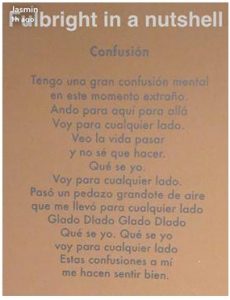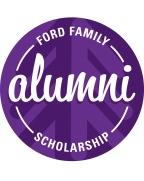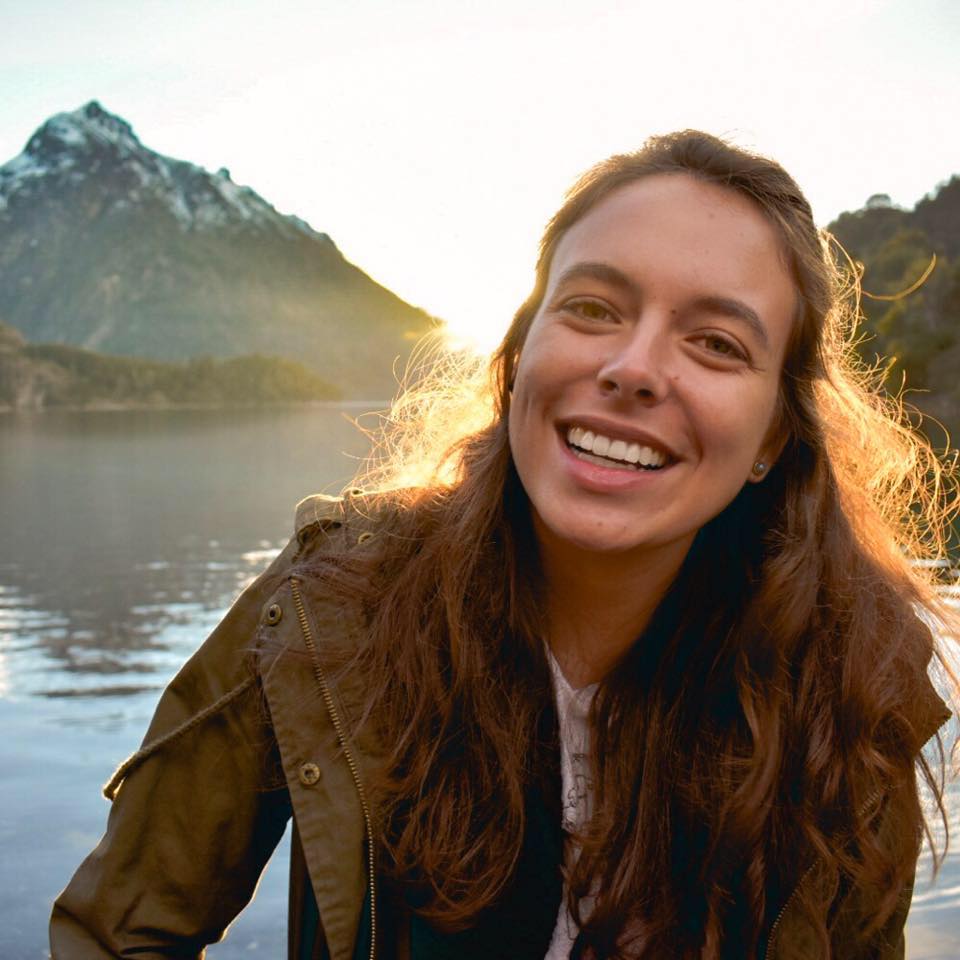Taylor Zehren
Ford Scholar, Class of 2012
University of Portland
From Ford to Fulbright. Here’s an interview with Scholar Taylor Zehren who is completing her Fulbright program in Argentina.
Why Argentina?
My grandpa does a lot of work in Argentina, so growing up I always heard stories from him about the beautiful culture, people, and places here. It was one of the things that inspired me to continue studying Spanish throughout college, and eventually to apply to do a Fulbright here. After years of seeing the country through his eyes, falling in love with Argentine futbol and literature from a distance, I was very eager to know the country for myself.
How long have you been in there? How long do you want to stay?
I arrived to Argentina in March and my Fulbright grant term ends in late November. That being said, I have plans to stay and travel a bit more for the summer here (our winter). I also have to admit that I am considering applying to continue my post-graduate studies in the lab that I am currently working in here in Bariloche, but we will have to see what life brings in the coming months!
What’s the next country/endeavour/adventure on your list?
The next adventure that is close on my horizon is summiting Aconcagua, the highest mountain in the Western Hemisphere, before leaving Argentina.
Please describe your experience as a Fulbright scholar. What’s the program like? What are you teaching/doing research? How is education different there?
In the English Teaching Assistant program in Argentina, my time is split between teaching in an English teacher training program and the personal project that I designed in my application. My personal project is, more or less, “science and outdoor education.” As a part of this project, I am doing pollination and land management research in a lab at the University of Rio Negro. Additionally, I am teaching an integrated science lab class (in Spanish), English classes, and outdoor education at a local high school. The high school has a very unique and somewhat alternative design and I feel extremely blessed to have the opportunity to work with the team of teachers there, as well as with the brilliant minds in my lab.
How is this experience different (or similar) than studying abroad?
The main difference I see between my Fulbright experience and studying abroad is the amount of independence I have. With the personal project comes the opportunity, and the responsibility, to create something that is entirely your own. Through this project, I’ve had time to really throw myself into the community here and experience my field in another country/culture in a way that feels very authentic.
What have you learned?
It is nearly impossible to talk about what I have learned through this experience without drastically understating it. I have learned so much about myself, the culture here, different worldviews, education, history and art, etc etc.
Honestly, the Fulbright scholarship brings with it a lot of challenges: finding your own housing, trying to build your personal project, fostering new relationships, living in a second language, dealing with differing cultural expectations in and out of the workplace, and all with limited support. Through all of that I have acquired an increased level of independence and self assurance, patience and recognition of life’s sense of humor.
What’s the best thing you’ve eaten/seen/done?
The best thing that I have eaten here is, by far, asado (Argentine barbecue). I was a vegetarian back in states, but when I travel I like to eat as the locals eat. And I have to admit that the red meat here is absolutely life-changing.
The other thing that I really love about Argentina (and that has taken over my life) is mate, which is a tea that you drink from a gourd with a special straw. The gourd is passed around to everyone in the group, and one person refills it with hot water after each person drinks. It carries with it a strong culture of sharing, community, and conversation. Some of my best times in Argentina have been spent drinking mate with a group of friends down by the lake, learning about each others’ cultures, similarities and differences.
How has being a Ford Scholar affected your experience?
I think that being a Ford Scholar gave me a lot of the confidence and skills to be successful in my Fulbright grant. I was able to step into everything from orientation to enhancement seminars and workshops, awards dinners and new relationships, with the experience and life skills training to carry myself appropriately and professionally. I was able to tackle challenges here and persevere through the beginning months with a relative ease thanks greatly to the previous opportunities and unwavering support provided by the Ford Family.
Highs and lows of Argentina?
A lot of my initial frustrations in Argentina have, with time, become the things I am the most fond of here. For example, after I arrived I was perpetually sitting at tables alone waiting for my friends to show up, because if an Argentine person tells you that they will meet you somewhere at 7, they actually mean 8 at the earliest. At first, I was so frustrated by the lack of communication and disregard for schedules. However, this is perhaps a small example of the way that things here just don’t work the same way as they do in the states. I have found here this easy going, understanding, family-oriented, culture that sees things, from time to rules, in a relatively different way than I was accustomed to. While my transition had its bumps, I have fallen deeply in love with this place, and all of its quirks.
Where are you hoping to be in 5 years?
In five years I hope to be close to finishing my PhD in the biological sciences. Exactly what, and in what country, is yet to be determined!
Fulbright scholar life in a nutshell: (can be picture/sentence/whatever)
This week one of my fellow Fulbright scholars sent me this snapchat (it has a lot of very Argentine phrases in it) and it made me laugh, because often times in this experience, this is exactly how we have all felt. But, at the root of all of the confusion and new challenges and learning, there is pure beauty and happiness, and a continuously deeper admiration for these new places we call home.


